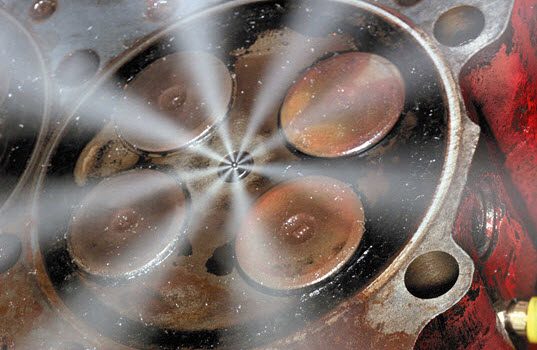It is important to know about the lubricity value of diesel fuel. If diesel fuel has proper lubricating property, it will be able to lubricate the engine, as it flows through the interior of the engine. In fact, diesel engines are counting on the lubricating property of diesel fuel too prevent early wear and tear. Injectors and fuel pumps in diesel cars also need fuel with proper lubricating property to ensure smooth operations and prevent wear. In some countries, the amount of sulfur in diesel fuel is significantly reduced. Low-sulfur diesel fuel is good for the environment, because it will produce less SOx gas emissions. High amount of SO2 or SO3 could lead to acid rain. However, removing sulfur from diesel fuel reduce its lubricity value. Sulfur is part of the diesel fuel molecule that ensures acceptable lubricating property. It means that fuel pumps and injectors could wear out faster and this could cause higher maintenance costs. This problem is more significant on passenger buses and long-haul trucks that need to cover many thousands of miles each year.
Another big issue for owners of diesel cars is cold weather performance. Diesel fuel is a complex hydrocarbon structure and it contain paraffin wax components. Wax contributes in increasing the overall energy content of diesel fuel. However, when the temperature is low, waxes will separate, causing discoloration on diesel fuel. When it happens, waxes will clump together and as the temperature gets lower, the problem gets worse. Wax will float and fuel filter can be plugged. The fuel flow will be disrupted and the car could refuse to run. In winter, it is important to use products that prevent clumps of wax from forming and sticking together. Separation of wax may still occur in very low temperature, but clumps remain small enough that they still pass through the filter. Once they get through, wax will burn along with the rest of the diesel fuel in the combustion chamber. For people who plan to drive in cold region with diesel car, it is important to be aware of this situation. Cold weather itself causes diesel engines more difficult to start.
In order to heat the air in the combustion chamber, diesel engine rely only on compression. In this case, when air or any gas is compressed it will get hotter. So, when diesel fuel is sprayed into the chamber, it will ignite. Gasoline-powered cars are less prone to this problem, because spark plugs can help to initiate the explosion inside the cylinder. In a low temperature situation, the air-gasoline mixture can be forced to combust. However, diesel engines don’t have spark plugs and if the combustion chambers get very cold, we will need to turn over the engine more than a few times to generate enough heat inside the engine. When it gets hot enough, the diesel fuel will start to ignite. When using cars in cold temperature, we should choose diesel fuel that has higher cetane rating, which is easier to burn at low temperature.































No Comments
Leave a comment Cancel